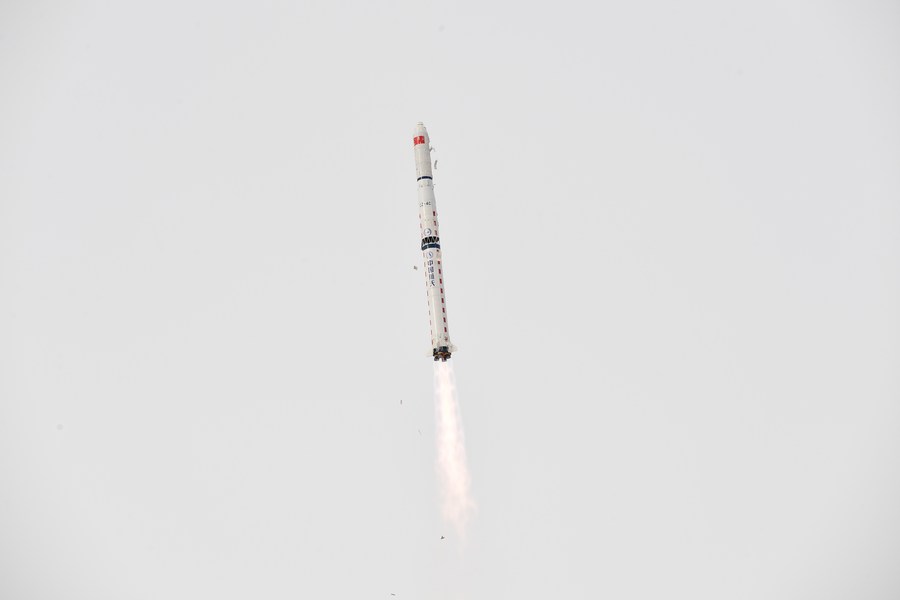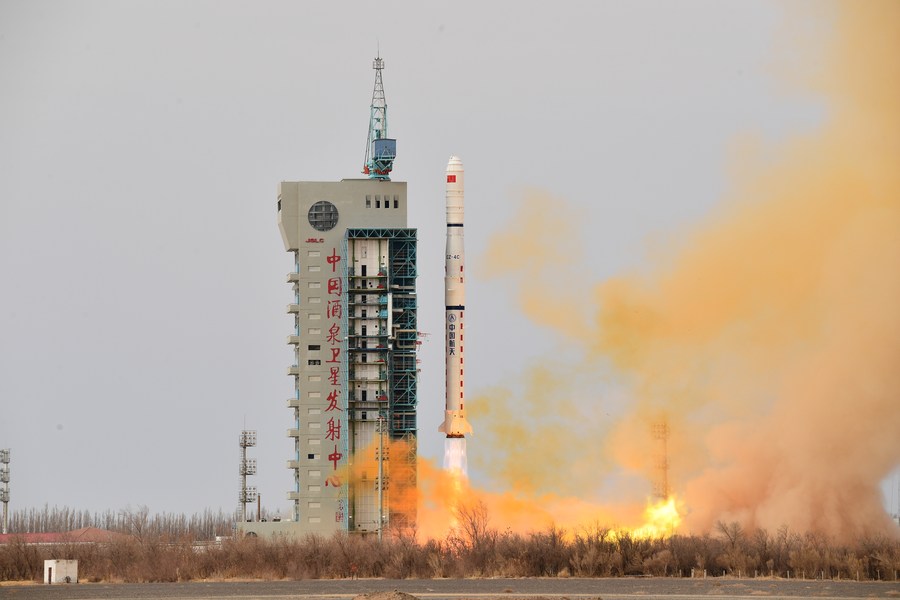


A Long March-4C rocket carrying the third group of China's Yaogan-31 remote sensing satellites blasts off from the Jiuquan Satellite Launch Center in northwest China, Feb. 24, 2021. (Photo by Wang Jiangbo/Xinhua)
JIUQUAN, Feb. 24 (Xinhua) -- The third group of China's Yaogan-31 remote sensing satellites were sent into space from the Jiuquan Satellite Launch Center in northwest China at 10:22 a.m. (Beijing Time) Wednesday.
The satellites were carried by a Long March-4C rocket. It was the 361st flight mission of the Long March carrier rocket series, the launch center said.
Having entered their planned orbits, the satellites will be used for electromagnetic environment surveys and other related technology tests.
China launched the first and second Yaogan-31 satellite groups on April 10, 2018 and Jan. 29 this year, respectively.

A Long March-4C rocket carrying the third group of China's Yaogan-31 remote sensing satellites blasts off from the Jiuquan Satellite Launch Center in northwest China, Feb. 24, 2021. (Photo by Wang Jiangbo/Xinhua)

A Long March-4C rocket carrying the third group of China's Yaogan-31 remote sensing satellites blasts off from the Jiuquan Satellite Launch Center in northwest China, Feb. 24, 2021. (Photo by Wang Jiangbo/Xinhua)

A Long March-4C rocket carrying the third group of China's Yaogan-31 remote sensing satellites blasts off from the Jiuquan Satellite Launch Center in northwest China, Feb. 24, 2021. (Photo by Wang Jiangbo/Xinhua)

 Award-winning photos show poverty reduction achievements in NE China's Jilin province
Award-winning photos show poverty reduction achievements in NE China's Jilin province People dance to greet advent of New Year in Ameiqituo Town, Guizhou
People dance to greet advent of New Year in Ameiqituo Town, Guizhou Fire brigade in Shanghai holds group wedding
Fire brigade in Shanghai holds group wedding Tourists enjoy ice sculptures in Datan Town, north China
Tourists enjoy ice sculptures in Datan Town, north China Sunset scenery of Dayan Pagoda in Xi'an
Sunset scenery of Dayan Pagoda in Xi'an Tourists have fun at scenic spot in Nanlong Town, NW China
Tourists have fun at scenic spot in Nanlong Town, NW China Harbin attracts tourists by making best use of ice in winter
Harbin attracts tourists by making best use of ice in winter In pics: FIS Alpine Ski Women's World Cup Slalom
In pics: FIS Alpine Ski Women's World Cup Slalom Black-necked cranes rest at reservoir in Lhunzhub County, Lhasa
Black-necked cranes rest at reservoir in Lhunzhub County, Lhasa China's FAST telescope will be available to foreign scientists in April
China's FAST telescope will be available to foreign scientists in April